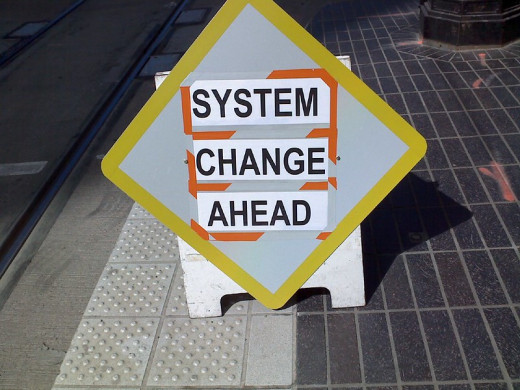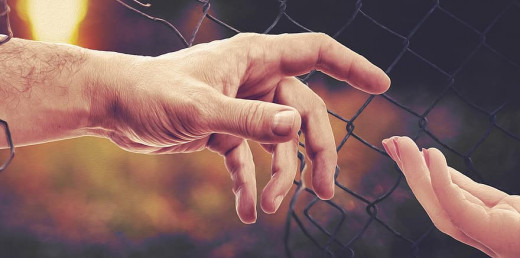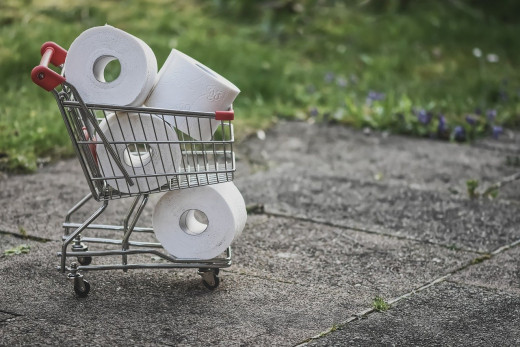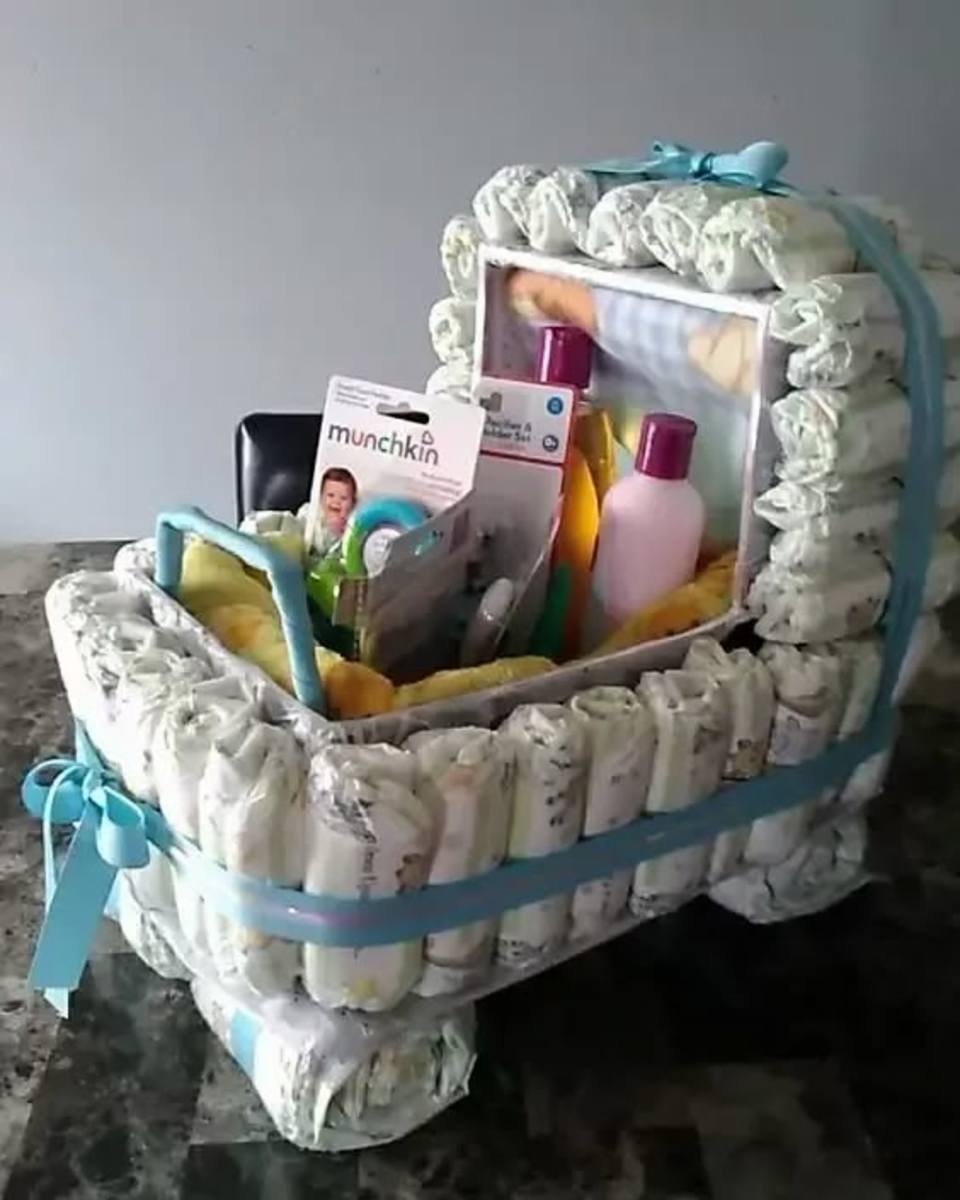5 Things I've Learned During the Corona Virus Quarantine

Things have changed in my life. Things have changed in the lives of millions. How this pandemic has affected people is an extensive list. Perhaps even worse than the financial crisis people are facing is the fact that nobody in power has any answers about how long this will last.
We the people have had our lives shattered over night and nobody can tell us when we can expect things to get better. There’s no denying that this is a scary situation, and one that is effecting everybody.
1. Staying Positive Is Important
Finding the silver lining of a situation is a skill that not everybody has but that we should all work on. It’s not always effortless to ignore the bad and find the good. Anxiety and depression can grab on and refuse to let go.
Think of negativity as a weight and positivity as a balloon. Is it going to be easier to get out of bed each morning while tied to a weight or while tied to a balloon? The weight will drag you down while the balloon may help lift you up. The weight is going to make it hard to complete ordinary tasks, while the balloon will not get in the way much. The weight will make you tired, while the balloon will not add any unnecessary work. Sure, the balloon might not help substantially, but it won’t hinder you nearly as much as the weight will.
The point is this — you don’t have to ignore the terrible things happening in life, but you shouldn’t dwell on them either. It’s important to keep a positive outlook because it will help you find the motivation to search for help with the problems you’re facing. If you allow yourself to drown in despair, you will never leave your bed, and that won’t help anything.

Tips To Avoid Depression While Quarantined
It’s easy to get lost in depression when facing problems like the ones the Covid-19 pandemic is causing. People are being told to stay home while they watch their jobs disappear, savings accounts dwindle, family and friends getting sick, retirements plunge, and they have no control over any of it. People are scared, sad and lonely. How do you stay positive amid that?
- Stay in touch with people you care about and who care about you. Face-time and other video chatting applications are a great way for people to interact while socially distancing.
- Stay active in any way that you can. Try to find ways to get up and moving. Exercise is a great way to fight depression because it prompts your body to release natural chemicals that make you feel good.
- Find a hobby and make yourself do it. Sometimes it can be hard to get motivated, but once you get the ball rolling, it will pick up momentum on its own. Hobbies are a wonderful way to feel accomplishment and happiness.
- Stop reading about the bad and take what you do read with a grain of salt. Not everything you read in the news is true, unless it comes from a reputable source. Try to limit the amount of time you spend each day reading the “bad news”.
- Find ways to laugh. It might feel wrong to laugh while hundreds of thousands of people are mourning, but allowing yourself to fall into depression will not help anybody either.
- Find a way to help. You don’t have to change the world, but helping even a neighbor can be greatly rewarding.
- Have a purpose and set achievable goals. Do you need to file for unemployment? Set a small, obtainable goal for each day. Every time you accomplish something you will be one step closer to your overall goal, and you will feel good knowing you got something finished.
- Take time for yourself. Find some quiet time each day to meditate on the things you are thankful for. Yes, there are a lot of bad things happening in the world, but we all have something to be thankful for in this moment. Try to focus on that at least once each day.

2. It's Okay to Ask for Help
Sometimes the biggest problem people face is their own pride. They get so wrapped up in achieving everything on their own that they look at help as a disability. There’s customarily a stigma surrounding programs that assist people, and that stigma can prevent people from reaching out for help. They don’t want people to believe they’re needy or unable to provide for themselves.
Nobody can conquer a mountain on their own. They use equipment designed to help them achieve their goal, team up with people who have the knowledge to help and surround themselves with a support system designed to help them get to the top of that mountain. This is clearly a metaphor, but it’s one that can be used in almost any example of someone achieving a tremendous accomplishment.
It’s okay to apply for unemployment if you’ve been laid off from your job. It’s okay to sign up for programs which can help you support your family. There’s no shame in taking something that is being offered to you when you truly need it. That’s exactly what they’ve designed these programs for — to support people who have found themselves in terrible situations.
3. You're Not A Bad Parent
Nothing is normal about the situation the world is facing. The daily routines that have guided millions of people each day have shattered. People everywhere are scrambling to make arrangements to fix the things that have changed.
School being closed has thrown a wrench into many families’ daily lives. Parents who’re still working are having to find new accommodations for child care, which is even harder now that most day-care centers have closed. Out-of-work parents are trying to figure out how to play teacher to their school-aged children with very little direction. Children are acting out against the sudden change in their lives and this new behavior can be confusing to parents who have not had to deal with it before now.
It’s okay to feel overwhelmed. It doesn’t make you a bad person if you’re feeling stressed. It doesn’t make you a bad parent if you’re getting frustrated with your children. This is not a normal situation, and it’s hard when a comfortable routine turns into chaos.
If you realize you’re feeling this way, reach out for support. Finding ways to create order out of the chaos is important and outside influences can help a lot with this. Don’t pretend everything is okay and ignore those feelings. Dealing with them as they arise is important to keep from becoming so overwhelmed you snap.
4. We Didn't Hate Our Jobs
How many times have you felt like staying home but couldn’t because you were committed to an employer? How many times have you wished for a break? You’re not alone. Everybody feels that way sometimes, but now that we've gotten our break, we're starting to realize it wasn’t as bad as we thought it was.
In many cases, people spend more time at work during the week than they do at home. When you lose your job, you lose the people you have formed relationships with as well. For many of us, work was our primary source of adult interaction. It was while we were at work that we had the most social contact. We talked with co-workers, customers or clients. We shared stories about our lives and listened while others told us about theirs.
Even if you didn’t like the work you did, you’re probably missing the routine of being employed. Sitting at home, wishing you could go back to work, it’s making a lot of people realize they didn’t hate their jobs as much as they thought they did.

5. People Are Afraid to Live Without Toilet Paper
Listen, unless you’re doing something very wrong, you do not need one hundred rolls of toilet paper at any one given time. People are not suffering any dire consequences because they didn’t stock up on toilet paper. It was not necessary to drain your savings account to buy toilet paper and aloe.
On the other hand, if you were unable to find a product you were looking for, please do not spend an astronomical amount purchasing it from someone online. People who purposely hoarded so they could sell it for fifty times more than they bought it for deserve to be stuck with a thousand rolls of toilet paper. Just wait it out. Your local stores are working hard to re-stock the supply chain, and many stores have already re-stocked.
This content is accurate and true to the best of the author’s knowledge and is not meant to substitute for formal and individualized advice from a qualified professional.
© 2020 Meagan Ireland








